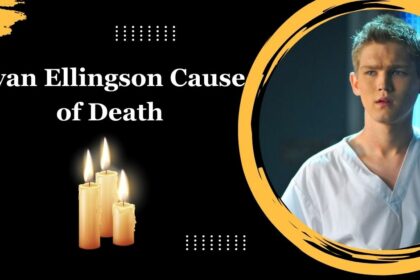Chicago Man Accused Of Armed Robbery At Wadsworth Truck Stop, Faces Charges!
In a startling turn of events, a Chicago man finds himself in hot water after allegedly robbing clerks at a…
Gas Leak Follows Garage Fire In Lake Zurich Home, Residents Unharmed!
A sudden fire in a Lake Zurich home's garage sent shockwaves through the neighborhood, but thankfully, everyone emerged unscathed. However,…
Florida News
Entertainment
Celebrity
Quentin Tarantino Drops ‘The Movie Critic’ As His Final Film – What Comes Next?
Quentin Tarantino's final film plans have taken a U-turn! The director, known for his wild and wonderful movies, has dropped…
Editor's Pick
Quentin Tarantino Drops ‘The Movie Critic’ As His Final Film – What Comes Next?
Quentin Tarantino's final film plans have taken a U-turn! The director, known for his wild and wonderful movies, has dropped…
911 Blackouts Hit Four States, Leaving Locals Unable To Reach Help!
In four states, the 911 system, which people rely on for urgent…
65-Year-Old Motorcyclist Dies In Collision Near RaceTrac In Leesburg, Confirms Police!
Tragedy strikes in Leesburg as a 65-year-old motorcyclist loses their life in…
Latest News
Latest News
Chicago Man Accused Of Armed Robbery At Wadsworth Truck Stop, Faces Charges!
In a startling turn of events, a Chicago man finds himself in…
Gas Leak Follows Garage Fire In Lake Zurich Home, Residents Unharmed!
A sudden fire in a Lake Zurich home's garage sent shockwaves through…
Quentin Tarantino Drops ‘The Movie Critic’ As His Final Film – What Comes Next?
Quentin Tarantino's final film plans have taken a U-turn! The director, known…
911 Blackouts Hit Four States, Leaving Locals Unable To Reach Help!
In four states, the 911 system, which people rely on for urgent…
65-Year-Old Motorcyclist Dies In Collision Near RaceTrac In Leesburg, Confirms Police!
Tragedy strikes in Leesburg as a 65-year-old motorcyclist loses their life in…
Florida’s New Expressway Links Orange And Lake Counties, Featuring On-Road Charging!
Get ready for a groundbreaking development in Florida's transportation system! A brand…
Local Middle Schoolers In Eastlake Prepare for 12-Hour Charity Dance
Get ready to be inspired as we journey into the heartwarming world…
California Housing Finance Agency Accepting Applications For Dream For All Vouchers!
Get ready for an exciting opportunity as the California Housing Finance Agency…
Baltimore Bridge Disaster Highlights Infrastructure Challenges!
Get ready for a sobering revelation as we delve into the aftermath…
Controversial TikTok Star Kyle Marisa Roth Dead At 36!
In the world of social media, Kyle Marisa Roth was a big…
DeSantis To Sign New Florida Education Bill Amidst Controversy Over Book Complaint Changes!
Get ready for a shake-up in Florida's education system as Governor DeSantis…
Renowned Filmmaker And Documentarian, Eleanor Coppola Dies At 87!
In a bittersweet turn of events, the world bids farewell to Eleanor…
1500 Runners Will Race At Florida’s Longest Bridge On Saturday!
Get ready for an adrenaline-pumping spectacle as 1500 runners gear up to…
Lakeport Man Arrested For Fatal Drive-By Shooting!
In the quiet town of Lakeport, something really shocking happened. A man…
Waukegan Resident Charged With Burglary And Vandalism!
In the bustling streets of North Chicago, a troubling incident has unfolded,…




























